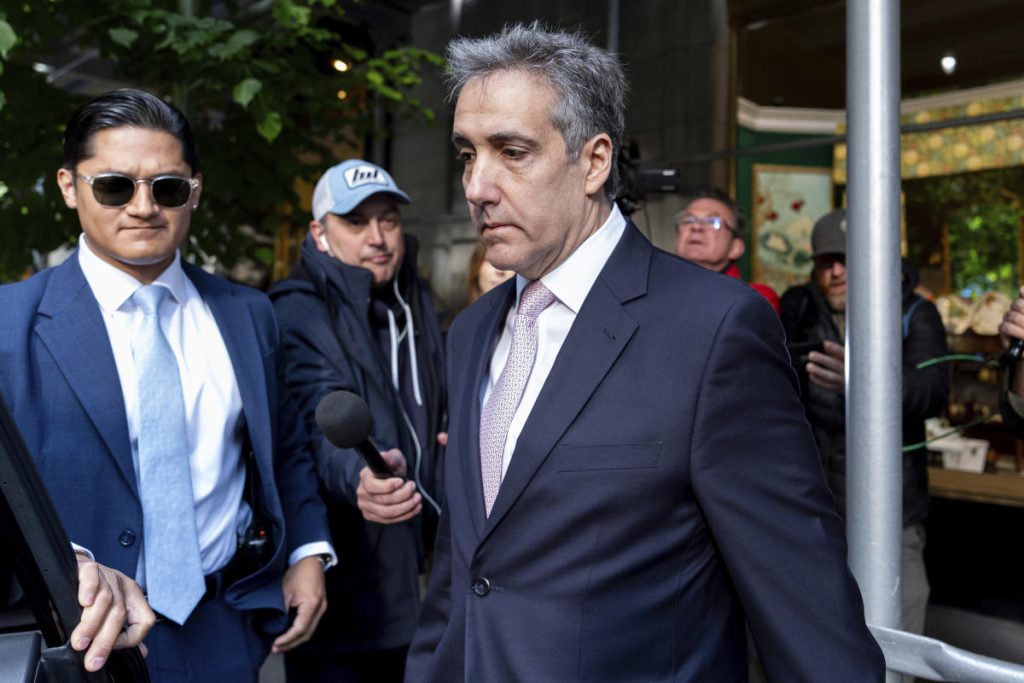Michael Cohen, a central figure in former President Donald Trump’s hush money trial, took the stand and presented a new persona to the world. In the past, Cohen was known as a fierce and aggressive “fixer” for Trump, as well as a vocal critic of the former president after their falling out. However, during his testimony, Cohen appeared as a mild-mannered and self-deprecating individual who stuck to the facts. This transformation could have a significant impact on the outcome of Trump’s trial, as Cohen revealed critical evidence indicating that Trump approved a plan to reimburse him for the payment made to Stormy Daniels to keep quiet about an affair just before the 2016 election.
The meeting in January 2017, which Cohen described on the stand, is a crucial piece of evidence in the case against Trump. During this meeting, Cohen claimed that Trump, along with Allen Weisselberg, the former CFO of the Trump Organization, reviewed and approved a plan to repay Cohen for the hush money payment to Daniels. This arrangement, allegedly falsified as legal expenses, forms the basis of the charges against Trump. However, Cohen’s account of the meeting is the only direct evidence available, as both Cohen and Weisselberg are convicted felons with a history of dishonesty. Trump is not obligated to testify, and if he did, he would likely dispute Cohen’s version of events.
Cohen’s effort to redefine himself during his testimony included moments of anger, reflection, and insight into his past behavior. He expressed frustration over not being considered for a position in the White House administration, despite his loyalty to Trump. Cohen’s recounting of events also shed light on his motivations and decisions, such as his family’s influence in steering him towards a legal career. Additionally, Cohen detailed his outrage at receiving a reduced bonus after the hush money payments were made, indicating a sense of betrayal by Trump.
Despite his composed demeanor on the stand, Cohen delivered compelling testimony that aligned with the prosecution’s theory of the case. He stated that Trump instructed him to wait until after the election to settle the deal with Daniels, suggesting that the payoff was intended to influence the election outcome. Cohen also mentioned Trump’s dismissive attitude towards his marriage and the impact of the affair on his relationship with Melania. These revelations bolstered the prosecution’s argument that the payment to Daniels was not solely intended to protect Trump’s family but was also a form of election interference.
Overall, Michael Cohen’s transformation as a witness in Trump’s hush money trial could shape the jury’s perception of the case. His testimonies, coupled with his new demeanor on the stand, offer a window into the intricate web of relationships and motives surrounding the alleged scheme. As the trial unfolds, the jury will have to weigh Cohen’s credibility against Trump’s potential defense, relying on his firsthand account to uncover the truth behind the cover-up. The outcome of the trial hinges on the jury’s trust in Cohen’s testimony and its ability to navigate the complexities of the case presented before them.


